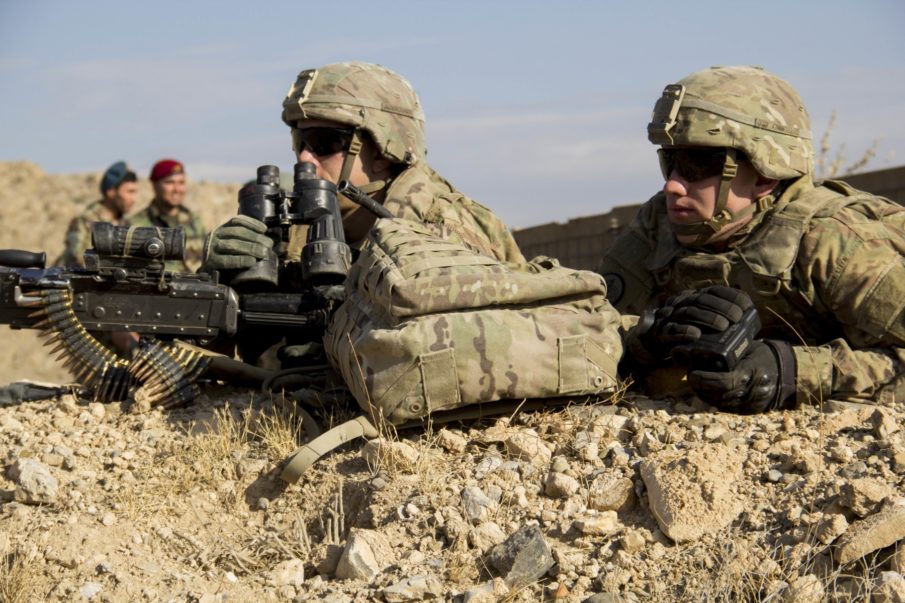Pentagon spokesman, Navy Capt. Jeff Davis, took part in a press conference in Washington D.C. on Monday, in which he addressed the ongoing fight against Islamist Extremists in Afghanistan, particularly since the death of Abu Sayed, emir of an Islamic State of Iraq and Syria affiliate known as ISIS-Khorasan, on July 14th.
The U.S. air strike that killed Sayed, as well as a number of other ISIS-K members, marked the third time U.S. forces in Afghanistan have killed the sitting leader of the region’s ISIS branch. Hafiz Sayed Khan was killed in July of 2016, and Abdul Hasib, in late April this year.
ISIS threatens America in the west because of its commitment to plot, direct and inspire terrorist attacks and its ability to recruit, move and finance the terrorists who commit these attacks,” Davis said. “The terrorists have been very clear in their propaganda… They want to recruit and attack globally.”
Although the group does not hold any meaningful territory in Afghanistan’s Nangarhar province any longer, they still number in the hundreds, according to Davis. While ISIS-K has long participated in the global effort to advance their terrorist ideologies, Davis said they have recently been having to devote most of the efforts to merely surviving.
There are certainly fighters there, but they are mostly spending their time trying to stay alive,” he said. “The Afghan forces partnered with the U.S. forces are keeping constant pressure on them. We assess that they are most active in Nangarhar, Kunar and Nuristan [provinces]. We’ve been putting pressure on them as they try to gain footholds elsewhere.”
ISIS, unfortunately, is not the only extremist group in Afghanistan. The ongoing fight against the Taliban has proven less successful, with U.S. commanders calling the situation there a “stalemate.” Since then, President Trump has authorized America’s Defense Secretary, James Mattis, to exercise more control over troop count in the country, and a number of NATO allies have agreed to send additional troops to the fight.
At a force generation conference earlier this month, 15 nations pledged additional contributions to Resolute Support,” NATO Secretary General Jens Stoltenberg said earlier this month. “We also got some more announcements and pledges during the meeting today.”
In Helmand Province, Afghan forces and U.S. Marine advisors from Task Force Southwest, captured the Nawa district center from Taliban control last week, in a fight that required air support from F-16 fighter jets and AH-64 Apache helicopters.
“Nawa plays a large role in the security of Lashkar Gah, because it is one of the larger towns that is just south of Lashkar Gah,” Davis said.
“As part of an expeditionary advising package,” he told reporters, “Marines with Task Force Southwest are advising Afghan forces to improve command and control, battle tracking, intelligence, maneuver, fires integration, and leadership evaluation and development.”
Six American service members have died fighting extremists in Afghanistan thus far in 2017.
Already have an account? Sign In
Two ways to continue to read this article.
Subscribe
$1.99
every 4 weeks
- Unlimited access to all articles
- Support independent journalism
- Ad-free reading experience
Subscribe Now
Recurring Monthly. Cancel Anytime.


COMMENTS